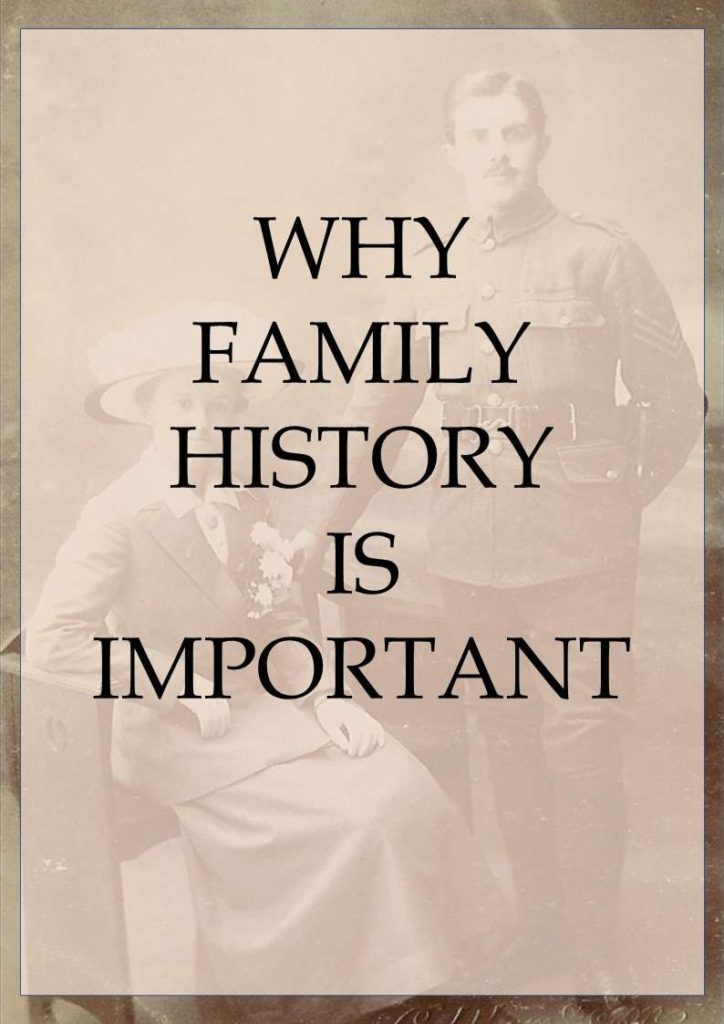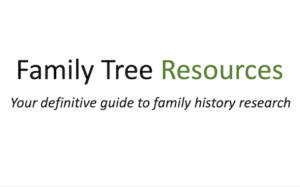
Many people ask themselves the questions of how they are who they are, where they came from, and why they are here. Family History can help to answer those questions.
Researching your family history can help you to establish your own identity, embrace your culture and traditions, and help you to understand why you are who you are. If we research our ancestors, and learn about our past, we feel a greater connection to them.
A family tree shows how you are related to your ancestors. Family history, however, goes much deeper than that. Old photographs, letters and diaries can help you discover what your ancestors were like and what life was like for them.
Hearing about your ancestors stories can be very inspiring to you and future generations. Family history can bring our ancestors to life so that we know much more than birth, marriage and death dates, although they are important too because they can help you to determine if you are following the correct line.
Has A Talent Been Passed From Your Grandparents?
If you have a talent such as acting or singing, it is entirely probable that this ability came from one or more of your ancestors.
Old Family Recipes Can Be a Link to the Past
Another reminder of family history can be found in the recipes we enjoy today. These recipes could have been handed down the generations from your parents and grandparents. My grandmother’s chocolate yum yum cake is still a favourite, and my Nana’s recipe for Christmas cake, written by her, is still used each Christmas. Cooking these recipes today really helps to maintain the connection to past generations.

Why Family History of Illness Matters
It is very important that you look into the causes of your ancestor’s deaths. It is not a very nice subject to talk about, but it could be essential that you know so that you can talk to a health professional about the illness and how you may be able to avoid it. This can help you to make the decision to lead a healthier lifestyle.
If a genetically heritable disease runs in the family, you can encourage younger generations to be tested for it. This may also help to answer the question of whether diabetes or high blood pressure runs in the family.
Family History Research Can Help You Reconnect with Relatives
Researching your family history may help you to reconnect with other family members you may not know existed or had lost touch with over the years. It could be that your family still live close by even though you never knew!!
Connecting with other family members can be very rewarding because they may know family stories or have family photographs they are willing to share with you.
When I met with a distant relative, she had many family photographs she allowed to scan. She also told me stories of her side of the family.
Family reunions can be a great place to learn about family stories. Your parents and grandparents may be able to share stories about what life was like when they grew up or aunts and uncles could share stories about what your ancestor was like as a child and what they used to do. These stories bring your ancestors to life in a way that simply knowing birth, marriage, or death dates never could.
Motivation to Research Family History
The motivation to begin to research your family history could be because you have heard a family story and want to know if it was true or are just curious about the family. For me it was when my Dad told me that his father had told him that his father came from Roade, Northamptonshire.
Another reason I became interested in researching my family history was that my Nana told me that the family was connected to the family of Lady Jane Grey, the nine days Queen of England. I am yet to still yet to prove this connection, however!!
Your Family’s Personal History Can Be Fascinating
Knowing more about the personal history of your family can be fascinating. Learning of your family’s hardships and how they overcame them can be very inspiring.
If your ancestors survived hard times, or have experienced a failure of some kind, this is a reminder that, unfortunately, not everything will work out, and that you too could experience disappointment and/or inequality.
Your ancestor’s resilience in the face of that adversity can show you that it is possible to recover from any bad times you may face.
Ancestor’s Involvement in Historic Event Can Be Inspiring
You may discover that your ancestor was involved in a historic event. There is nothing better than learning that your ancestor played a part in an event that helped to shape history. My ancestor, Thomas McJannett, fought in the Battle of Waterloo.
You may even discover that your ancestors helped to found the town you and your family live in, or helped to found the school you attended.
Good and Bad Aspects of Family History
It is very important to accept that there may be good and bad aspects to your family history. You should not allow this possibility to put you off researching your ancestors and learning about them and their lives, because whatever you discover, you know that you can follow your own path and not be restricted by what your ancestors did.
Importance of Family History For Kids
Research conducted by Emory University has determined that the more children know about their family history, the better equipped they are to deal with stressful situations.
Research Family History to Help You Understand Who You Are
Studying your family history is also important because many people have no idea of their roots and do not have time to conduct research until they are older, by which time parents and grandparents have passed away and all their stories and recollections have been lost forever.
We are in danger of losing the opportunity of discovering who we are and can even lost some sense of our own identity and can never answer the question of why we are who we are.
It is very important to invoke interest in family history so that these things are not lost. If your family shares these stories they will never be lost.
Ask Your Relatives Questions
If you ask your relatives questions about themselves and what their life has been like, you can begin to see what you and your relatives have in common and can strike up a meaningful conversation.
You could then ask them about their background, which can really help to break the ice at family gatherings.
You should ask your relatives questions before its too late. Sometimes a subject is never raised – not because it was deliberately kept secret, but that the question had simply never been asked before.
If you can, ask to see birth, marriage, and death certificates, ensuring that you take a copy of the document or write down all the information for future reference.
Record Your Family History
Recording your family history can help your relatives and descendants to connect with you and learn about you after you are gone. To find out more about recording family history, please read my article: recording family history – why organising research is important.
Recording your family history can also help you to foster relationships with other family historians and can result in you making lasting friendships. You can become part of a network where people help each other to discover more about their past, and thus their own identity.
